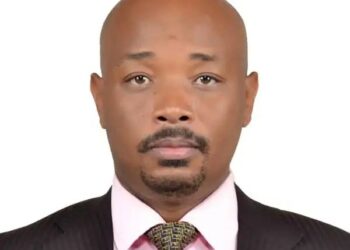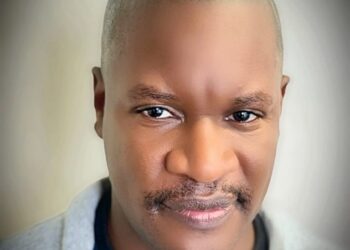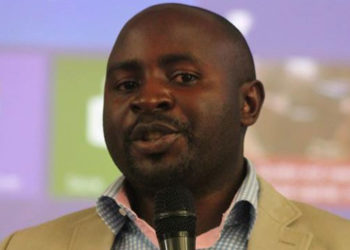Federalism has been defined “a system of government in which the same territory is controlled by two levels of government. Generally, an overarching national government is responsible for broader governance of larger territorial areas, while the smaller subdivisions, states, and cities govern the issues of local concern”. The best definition of federalism is that “federalism is a combined or compound mode of government that combines a general government (the central or “federal” government) with regional governments (provincial, state, cantonal, territorial, or other sub-unit governments) in a single political system, dividing the powers between the two”.
According to Encyclopedia Britannica “the literal meaning of federalism may be that “federalism is a mode of political organization that unites separate states or other polities within an overarching political system in a way that allows each to maintain its own integrity while being integrated in the whole without losing identity, freedom of action, local sovereignty, local democracy, and local ownership of land, territory, resources and future”. Encyclopedia Britannica goes on to state that “Federal systems do this by requiring that basic policies be made and implemented through negotiation in some form, so that all the members can share in making and executing decisions. The political principles that animate federal systems emphasize the primacy of bargaining and negotiated coordination among several power centres; they stress the virtues of dispersed power centres as a means for safeguarding individual and local liberties”.
Therefore, the negotiated approach is a priceless tool in building federal systems. It involves broader and smaller communities in the important enterprises of decision making -especially political -and integrated resources governance and management. This is unlike the case of unitarism in which political decision-making has tended to be invested in one person – the President or Prime Minister, often to the detriment of constituent peoples and regions. The resultant governance, in the case where the topmost political governor is the President, is Presidentialism, where the President takes charge of everything and gets involved in everything small and big. He or she does many things singlehandedly, and may reject the constraining effect of the pubic, legislature, judiciary and even the entire executive in favour of his or her personal decisions and choices in leadership and governance. This have increasingly become the case in Uganda, where the President has liberated himself from the electorate and the institutions. His excesses can no longer be restrained by meaningful institutionalism. He has placed over and above the institutions, and taken advantage of the provision of the Uganda Constitution 1995, whose making he presided over, that “the President is the Fountain of Honour and is above the Law.”
Accordingly, unitarism has been carried to extremes beyond what the designers of the 1966 unitary constitution envisaged. The President’s decades long absolute rule of Uganda has armed him with a grand opportunity to turn himself into a worshipable, divinized, glorified, greatly feared ruler who can do anything under the Sun. His decisions and choices are not negotiable. He has reaped the most from unitarism in the 21st Century. He has completely made the negotiated approach irrelevant in the governance of Uganda. Institutions are subservient to him and if Ugandans were docile and a slave-like society he has been able to make them even more docile by effectively occluding them from meaningful involvement in the governance of their country and management of their God-given resources; create a state of fear through imposition of obnoxious laws and overmilitarization of everything conceivable. As I stated in another article comparing the President of Uganda with the governing style of the France, Napoleon Bonaparte, who took himself as the embodiment of France and democracy, President Tibuhaburwa Museveni’s style of governing is the same.
Bonaparte used the French Parliament to advance his interests, and was annoyed and uncompromising if the Parliament contradicted his interests and choices. It is the same with President Tibuhaburwa Museveni. He is over and above everything. The consequences of this are already beginning to manifest. A good example is failure of government to manage the national budget. Another is failure to pay government workers on time. Another is failure to deliver social services. Yet another is unnegotiable governance of the country in favour of the President. Everything begins with the President and ends with the President. No negotiation. Governance that devalues the negotiated approach is destined to end in disaster sooner than later.
The Negotiated Approach can be used to improve governance, management of resources and to make the citizens and communities more involved and confident and assertive in improving their own livelihood. It can enable citizens to improve their knowledge, understanding and insights of governance, and their capacity to solve problems to serve the common interest, and not just a process of bargaining (Rob Koudstaal and Vijay Paranjpye, 2011). It is the best tool for negotiating political governance of the Federal System of Government, away from imposition of unitary government by political elites pursuing their own interests and designs over a country.
Unitary government assumes that the people and their communities do not know what they want or understand what development is, and that all development must begin at the centre if it is to be useful and effective. Instead, however, it has allowed in Uganda, individuals to become more powerful than government; to grab public money and resources, and to abuse the public interest, especially through the erection of the deep state, which now has more power than the public state of elected officials. It is unfit in a century of enhanced interaction, information, communication, integration and sustainability, and tend to act as a roadblock to all this, In Uganda the unitary government has been busy limiting interaction between peoples and communities, information, communication, integration and sustainability in order to enhance the sovereignty and superiority of the Presidency, State House and the deep state. What Uganda now needs is to undertake constitutional reforms to create a federal government and a federal state to re-empower the people, communities and regions as was the case at independence on 9th October, 1962, but in a more strengthened form to make them fit in a fast changing and challenging century.`
In the United States of America, the federal government has the power to regulate trade between states, declare war, manage the mail, and print money – among several other powers. State governments have their own set of powers too.
Federalism in Nigeria refers to the devolution of self-governance by the West African meganation of Nigeria to its federated states, that share sovereignty with the Federal Government. Federalism in Nigeria can be traced to Sir Frederick Lord Lugard, when the Northern and Southern protectorates were amalgamated in 1914.
Earlier Fredrick Lugard had travelled to East Africa to help combat slave trade. He was the same man who stitched Uganda together, then went on to governn Hong Kong and tospearhead the building of one of the best universities in the world. While still in Uganda, Lugard travelled to London to publish a book in 1893, which argued the case for continued British involvement in the East African region. The book was influential in persuading the British government to establish the Uganda Protectorate in 1894, which brought Buganda and neighbouring nation states under direct British rule. Eventually, the Uganda Protectorate consisted of the nation states, not tribal entities, of Acholi, Ankole, Buganda, Bugisu, Bukedi, Bunyoro, Busoga, Karamoja, Kigezi, Lango, Moyo, Sebei, Teso, Toro, West Nile and the little Kingdom of Rwenzururu, which was included in the Kingdom of Toro. At independence on 9th October, 1992, The Protectorate was renamed “the Commonwealth Realm of Uganda” to reflect the truism that Uganda was a loose conglomeration of 15 nation states. If after independence the new black rulers, armed with the Uganda Constitution 1962, had thought correctly, they would have used the Commonwealth realm model to build a Federal State of Uganda consisting of the different nation states sharing power with the federal government, just as was/is the case in Nigeria. Unfortunately, the rulers chose unitarism over federalism.
This has proved to be the tragedy of Uganda. It created central power that has ended up consummating the traditional states, bantustanizing them and dispossessing them of their resources and future. With this the centre has concentrated resources of energy, time and money on building military power to subdue and exploit the independence nation-states for the benefit of a few political families, which are now dispossessing and displacing the indigenous peoples from their traditional, ancestral lands, and distorting their futures. The indigenous people are now regarded as enemies of the state and all gun power of the political military state are directed at them ostensibly to ensure peace and security, yet in fact the goal is to conquer and control them perpetually for the benefit of an invasive and occupying ethnic group from outside Uganda, which has accessed and captured state power through the power of the gun and made laws to safeguard itself from the majority of Ugandans that belong to the indigenous groups.
There is need to use the negotiated approach to reconstitute Uganda into the 15-nation state, re-empower the indigenes, and create a Federal State of Uganda equivalent to the Federal State of Nigeria. If there is a country, which is ripe for a Federal Status in the 21th Century it is Uganda. The people are tired of unitarism and no longer have any confidence that a unitary central government can serve the public interest now and in future. There is consensus that unitarism is producing state inspired criminality and allowing foreigners to capture every aspect of national life and sovereignty of the country for the benefit of a few invasive, greedy and selfish politico-military families and those who belong to the patronage chain created to service them. All Ugandans who in slumber must wake up to the new reality of their country if they want to recover their collective ownership of their country, self-determination and sovereignty over their future, resources and country. The alternative is a catastrophe well into the future.
Ugandans must free themselves from the hook of illusionary richness, illusionary development, illusionary transformation and illusionary progress via money bonanzas, technomechanics and deceptive schemes ostensibly to conquer income poverty while enhancing ignorance, intellectual poverty and docility from top to bottom.
In conclusion, Federal system government is the current alternative to unitary system of government in 21st century Uganda and beyond; not feudalism (or monarchism) or hereditary political system of a few families that happen to be the beneficiaries of unitary government right now. Federalism is not tribalism in a country where tribalism was never known to exist until the colonialists came and artificially created it. It is a means to the end of freeing our sovereignty from invasive externally-oriented ethnic and political forces, and sharing the sovereignty of Uganda between the newly re-empowered federated states of the periphery and the federal government at the centre. Therefore, constitutional reforms must be towards this rather than just changing those occupying power at the centre. Any other constitutional reforms are diversionary and will not serve the ultimate collective public interest of Ugandans: freedom, democracy, re-empowerment and sovereignty over power, resources and future. This article is a clarion call to all Ugandans in and outside the country to take federalism seriously and extensively debate it as the way for us organize our country politically well into the future. Federalism is the best governance system for Uganda. It is superior to unitarism in delivering freedom, democracy, empowerment, human rights, development, opportunity, progress, unity, peace, security, sustainability and integration from bottom to top. Let us all collectively strategize for federalism to rehumanize our lot as indigenes of Uganda.
For God and My Country
Do you have a story in your community or an opinion to share with us: Email us at editorial@watchdoguganda.com













